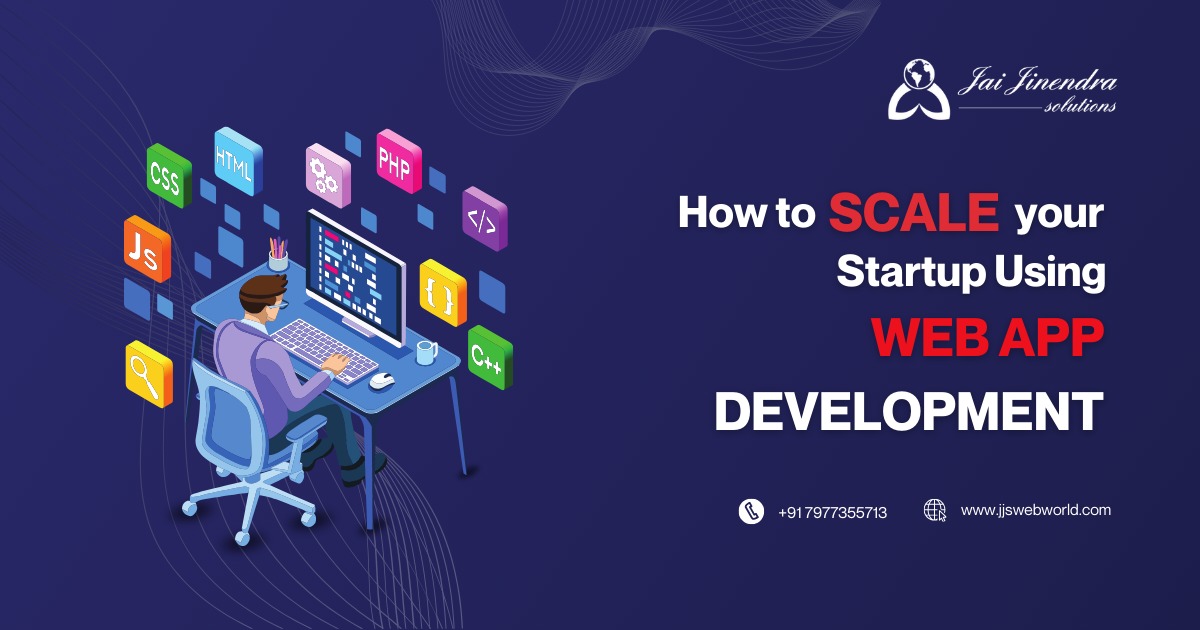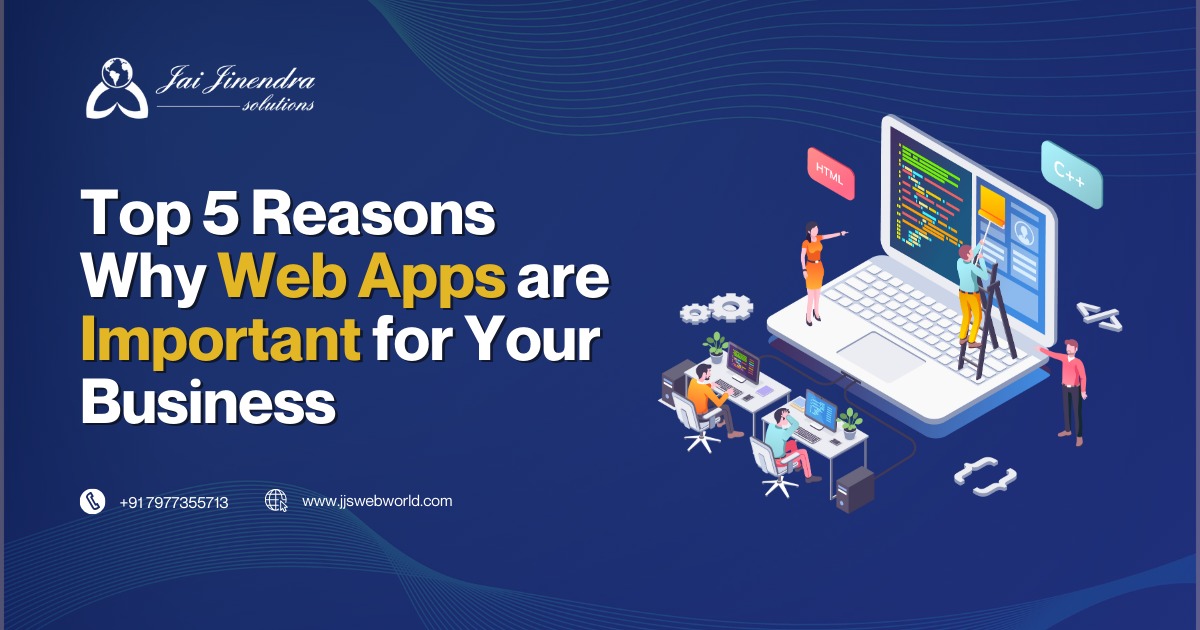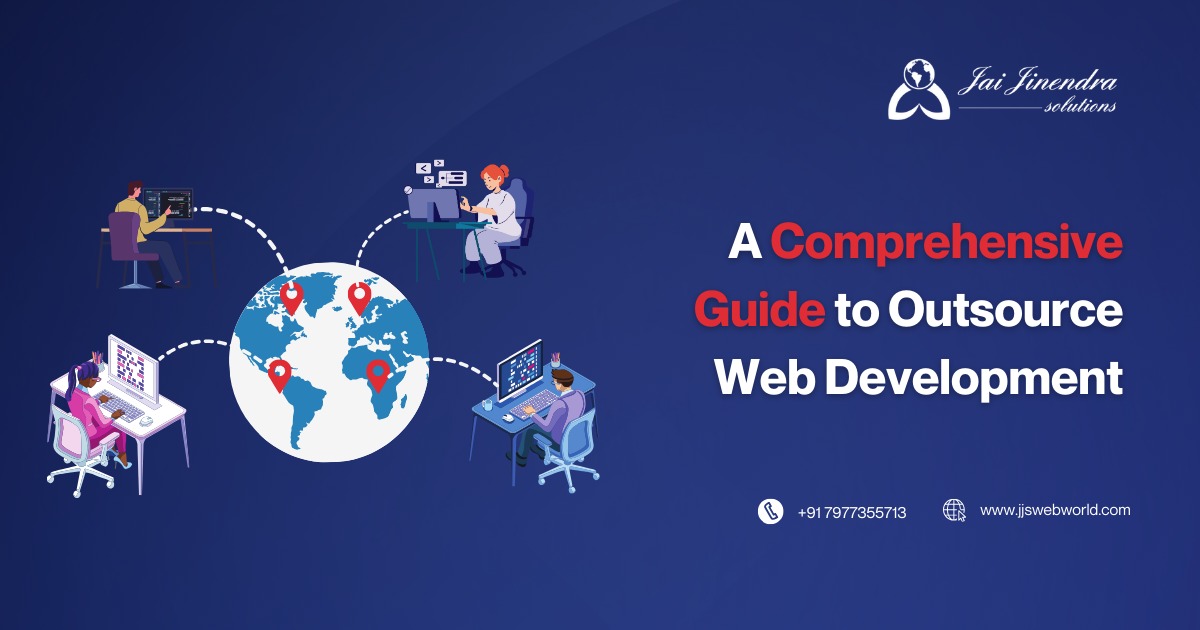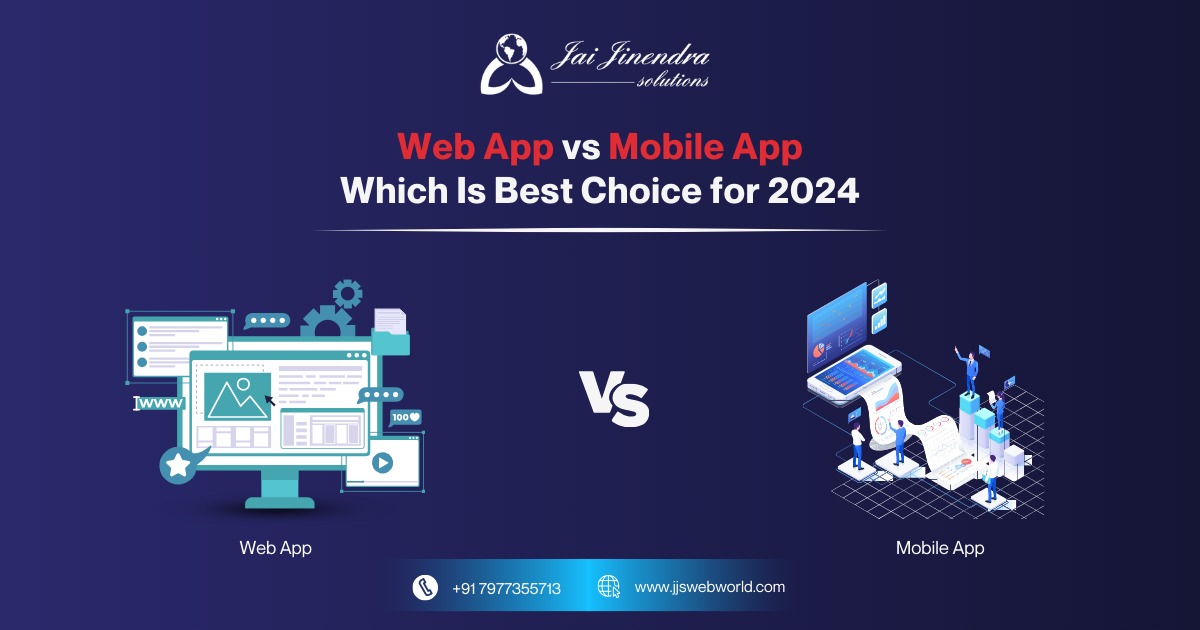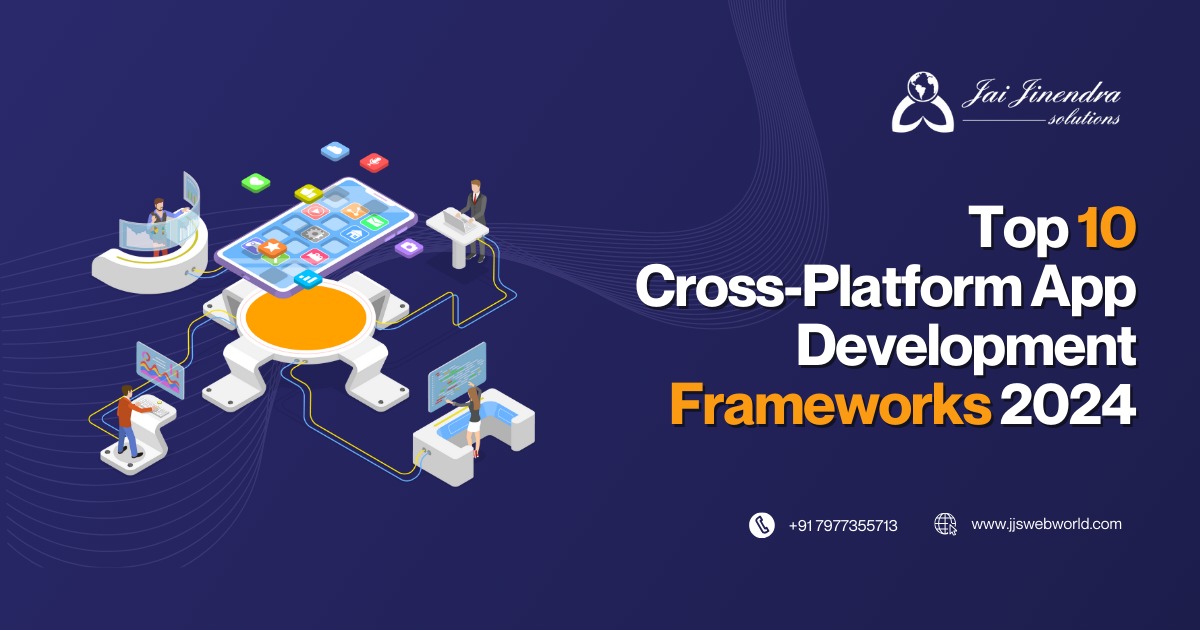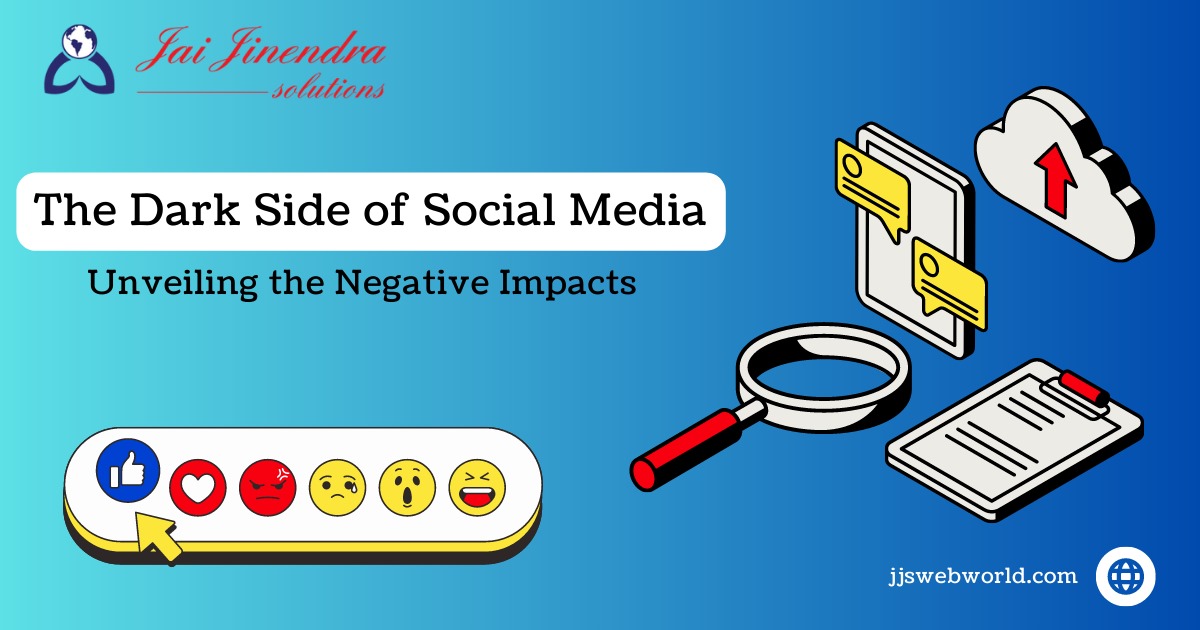- info@jjswebworld.com
- +91 7977355713
- 302, Arihant Residency Road No.2 Pushpa Park Dafftary Road , East Mumbai 400097, India
The Dark Side of Social Media: Unveiling the Negative Impacts
Latest Posts
- 17 Aug 2023
- admin
Social media, once hailed as a groundbreaking communication tool connecting people across the globe, has taken a rather sinister turn in recent years.
While its advantages are undeniable, the worst aspects of social media have begun to overshadow its benefits.
In this blog post, we delve into the depths of the negative impacts of social media, exploring real-world examples and shedding light on the darker side of the digital world.
1. Mental Health Under Siege
The allure of social media often conceals the mental health toll it takes on users. With the constant comparison to curated and often unrealistic portrayals of life, many individuals fall prey to feelings of inadequacy, low self-esteem, and anxiety. A case study published in JAMA Pediatrics found that adolescents who spent more time on social media platforms exhibited higher rates of major depressive disorder. The images of seemingly perfect lives juxtaposed with personal struggles shared by users highlight the psychological complexities of navigating the virtual realm. (https://fortune.com/2019/07/15/social-media-teen-depression/)
2. Misinformation Epidemic
The rampant spread of misinformation has reached alarming proportions on social media platforms. During the COVID-19 pandemic, false claims about miracle cures and unfounded conspiracy theories gained traction, leading to real-world consequences. The World Health Organization (WHO) had to actively combat misinformation, particularly on platforms like Facebook and Twitter. Such instances underscore the power of social media to amplify falsehoods and sow confusion, ultimately posing risks to public health and societal stability.
Case Study: The Spread of "Pizzagate" (https://www.rollingstone.com/feature/anatomy-of-a-fake-news-scandal-125877/ )
One notorious example is the "Pizzagate" conspiracy theory that emerged on platforms like Reddit. The theory falsely claimed that a Washington, D.C. pizzeria was the center of a child trafficking ring involving high-profile individuals. The theory spread rapidly on social media, leading to harassment and even an armed individual entering the pizzeria. This case vividly illustrates how unchecked misinformation on social media can have real-world consequences.
3. Privacy Invasion: A Modern Menace
In an era where personal data is currency, social media platforms often exploit users' information without their consent. The Cambridge Analytica scandal, involving Facebook, exemplified the misuse of personal data for political advertising and manipulation. This breach not only exposed the vulnerability of user data but also raised questions about the ethics of data handling by tech giants. The alarming trade-off between convenience and privacy calls for stringent regulations and user awareness campaigns.
Case Study: The Facebook-Cambridge Analytica Scandal (https://www.nytimes.com/2018/04/04/us/politics/cambridge-analytica-scandal-fallout.html )
During this scandal, it was revealed that Cambridge Analytica harvested personal data from millions of Facebook users without their consent, using it to influence political campaigns. The incident shed light on the lack of transparency and accountability in how user data is handled, prompting debates about the ethical implications of social media platforms' data practices.
4. Digital Addiction and Detachment
The addictive nature of social media platforms is no accident. Designed to capture and retain users' attention, these platforms often lead to excessive screen time, disrupting real-world interactions. The dopamine-driven cycle of notifications and likes can result in digital addiction, pulling individuals away from face-to-face connections. This detachment from reality has implications for mental well-being and overall social cohesion, underscoring the need for mindful usage.
Case Study: Impact on Teenagers' Sleep Patterns (https://publications.aap.org/pediatrics/article/145/Supplement_2/S204/34446/Sleep-Disorders-in-Adolescents)
A study conducted by the American Academy of Pediatrics revealed that excessive social media use before bedtime is linked to poorer sleep quality among teenagers. The blue light emitted by screens and the stimulation from social interactions can interfere with sleep patterns, affecting adolescents' overall health and well-being.
5. Fractured Relationships in the Digital Age
While social media was intended to bring people closer, it has paradoxically contributed to strained relationships. Excessive use of these platforms has been linked to jealousy, insecurity, and even infidelity. Couples might find themselves arguing over perceived slights in online interactions, leading to real-world conflict. A study in the journal Cyberpsychology, Behavior, and Social Networking examined the connection between Facebook-related conflict and relationship dissatisfaction, revealing the delicate balance between virtual and actual intimacy.
Case Study: The Impact of Social Media on Marital Relationships (https://www.researchgate.net/publication/343810389_Evaluating_the_use_of_social_media_in_escalating_conflicts_in_romantic_relationships)
Research conducted revealed that excessive use of social media platforms, particularly when it involves interactions with individuals outside the relationship, can contribute to marital dissatisfaction and conflicts. Even in romantic relationships, the use of social media has brought jealousy and increased conflicts.
The dark underbelly of social media is a stark reminder of the need for responsible digital engagement. While social media marketing and digital marketing solutions have undoubtedly transformed the business landscape, the negative impacts on mental health, truth, privacy, addiction, and relationships cannot be ignored. As individuals and as a society, it is crucial to navigate the digital landscape with awareness, skepticism, and a commitment to maintaining the human connection that lies at the heart of meaningful interactions.

